The eco-awareness and sustainability event that we called Youngsters in Nature has come to an end and we can safely say it has been a success.
The event was held between the 1st and the 14th of August and consisted of a summer camp organised in the small traditional village Breb, in Maramureș, Romania. There, 20 young people between the ages of 12 and 21 coming from urban areas learned about why and how to live a more sustainable lifestyle and put the acquired knowledge about ecology and sustainability into practice.
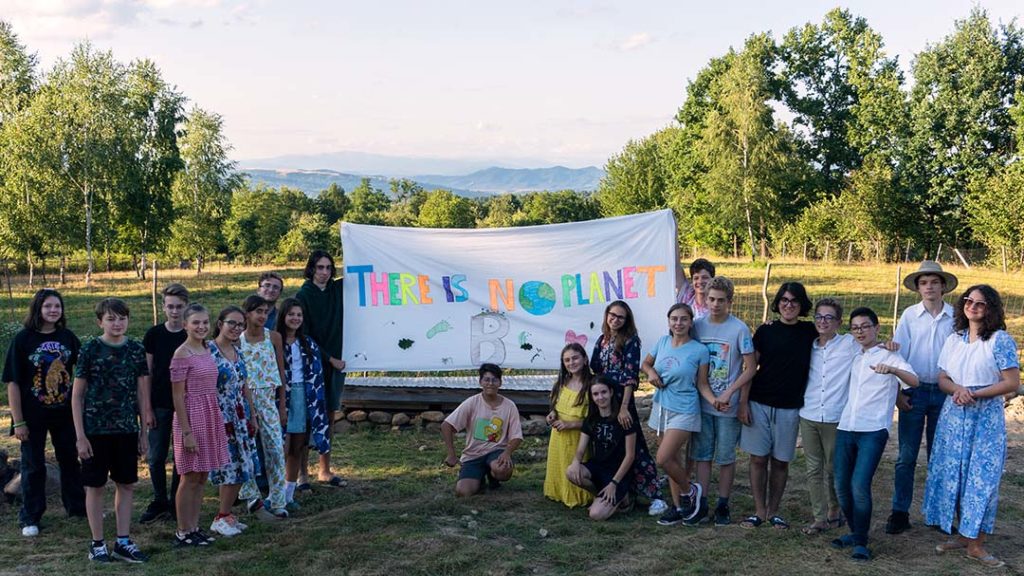
Every morning started with an intense workout organised by our sporty supervisors Alexander and Teodor, and a filling but environmentally-friendly breakfast.
The participants would then split into four groups and attend crafts workshops. These included spinning, weaving, carpentry, sculpture, shoemaking, breadmaking, fence-making, house isolation, and natural materials architecture. By the end of the camp, every group tried out each craft at least once.
The point of this exercise was not so much for them to build practical skills in each craft – this would take years – but for them to be exposed to the variety of products one can obtain with just natural materials.
The afternoons were meant for developing a more theoretical understanding of the ecological crisis and sustainability. After lunch came the quiet hour, meant for reading books about sustainability and preparing presentations on various relevant topics.
Immediately after that, the participants would attend a 3-hour session – with breaks, of course – about various topics in ecology and sustainability, held by Prof. Dr. Carmen Postolache and Alexander Rotter. These classes presented complex topics in a way that can be understood by the age group of the participants.
While the material was sometimes still quite heavy, we were delighted to realise during an informal session at the beginning of the second week how much the young participants actually remembered from what they had been taught. The more active and informal brainstorming sessions seemed to work quite well in conjunction with the formal passive classes because they engaged the teenagers’ minds more. It made them think issues through more carefully in order to be able to explain them to the rest of the group.
The classes were followed by dinner, and either free time, team sports, or various activities in a more relaxed atmosphere, often by the campfire.
An early bedtime ensured that the participants kept up their energy levels required in order to keep up with the high pace and wide variety of the activities.
Ecological Footprint Testing to Measure the Impact of the Camp
At the end of the summer camp, the participants underwent a second ecological footprint testing based on their lifestyle in the camp. This will later serve as a comparison to the initial testing, which the same young people had done while living in the city.
By using ecological toilets and showers with water heated by the sun, both water and heating energy were saved. The limited use of electronic devices ensured a minimal use of electricity. Additionally, the participants were mainly walking around the village, or using means of public transport – sometimes when attending workshops for example -, which minimised fuel consumption and CO2 emissions.
On Wednesday during the second week, an almost 0-carbon lifestyle was attempted. On this day, in addition to all the other measures taken during the camp, all meals were vegan and self-cooked, and no electrical lights were used. Hence, the kids went to sleep quite early too!
Crafts Workshops for Increased Eco-Awareness
🧶 As part of the sustainability summer camp in Breb, we showed the kids traditional crafts in order to make them more conscious about the provenance of the products they are using and to show them that some useful things can be obtained without the help of a highly polluting industry.
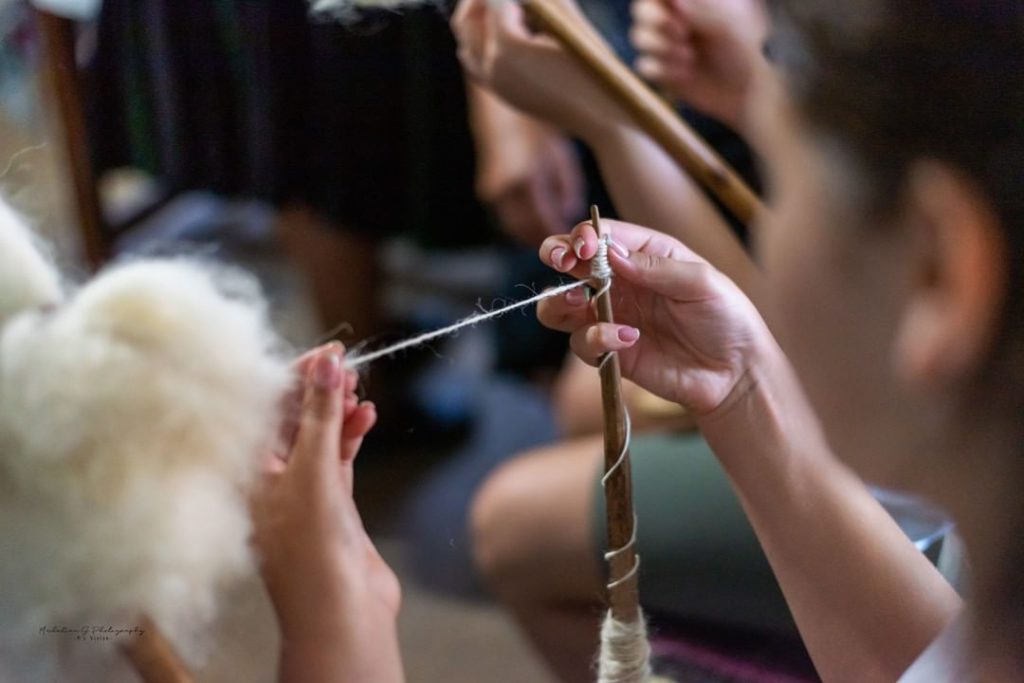
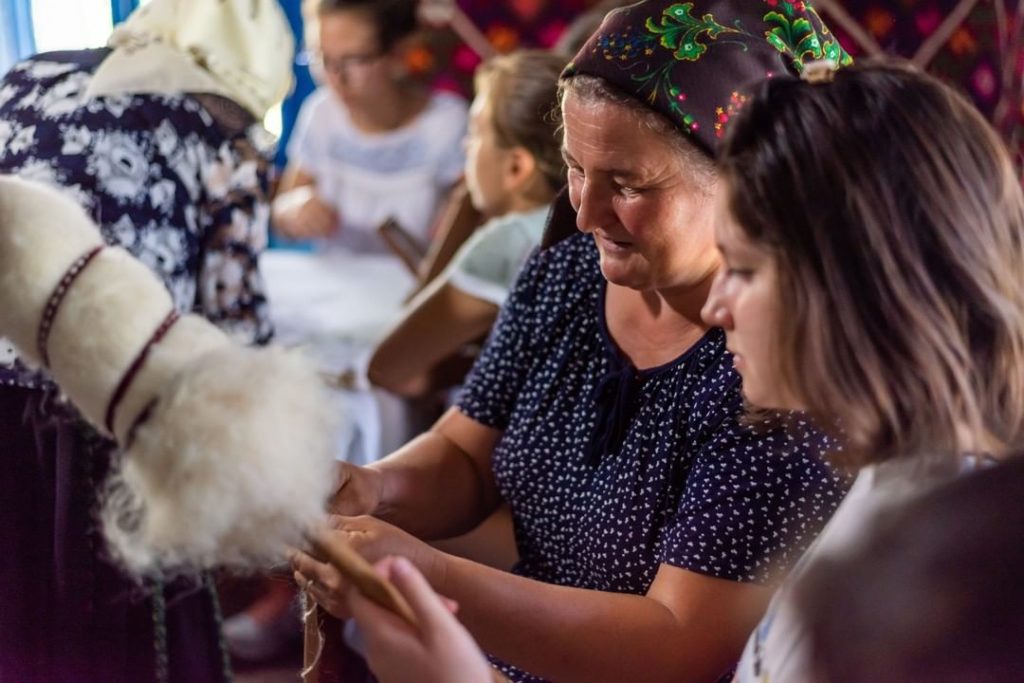
🐑 Am început prin scălmânarea lânii și apoi am trecut la tors, procesul prin care lâna devine fir de ață din care putem țese mai apoi haine, pături, trăistuțe și alte obiecte.
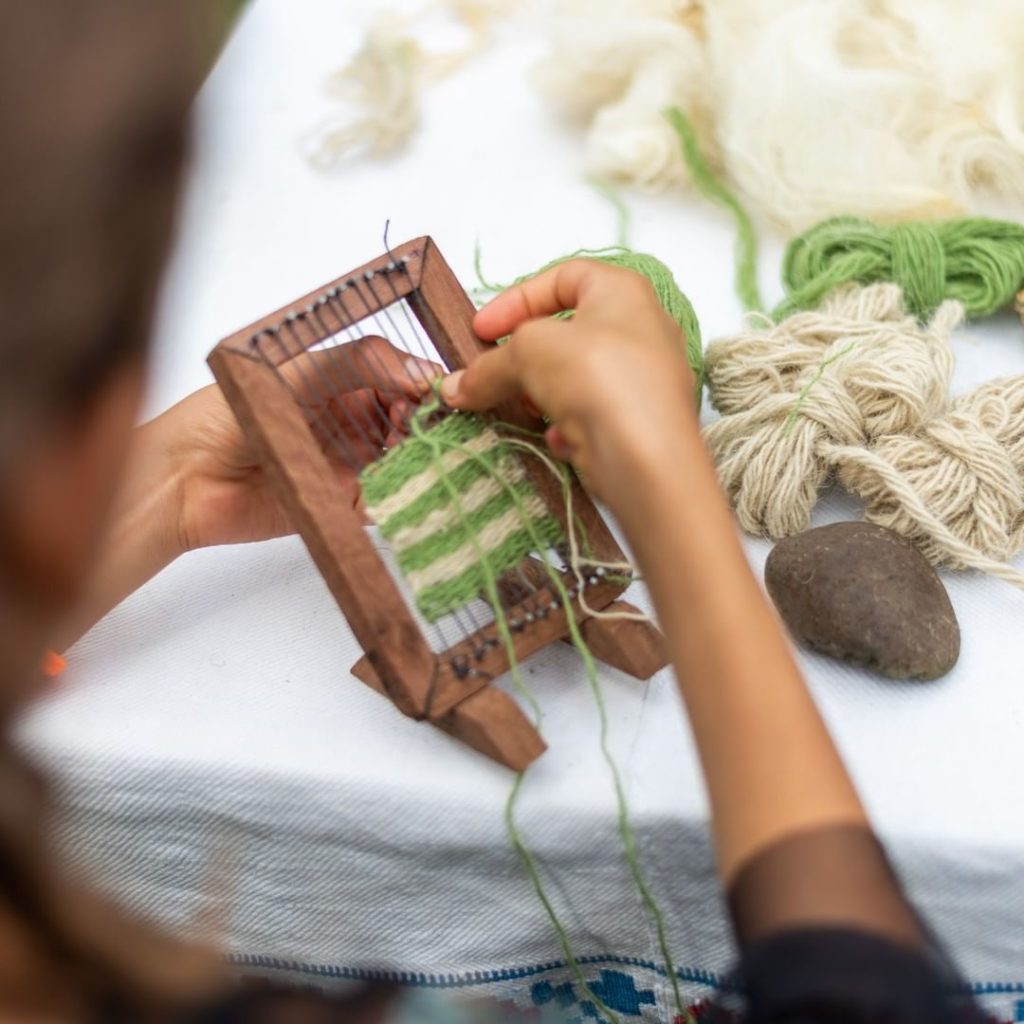
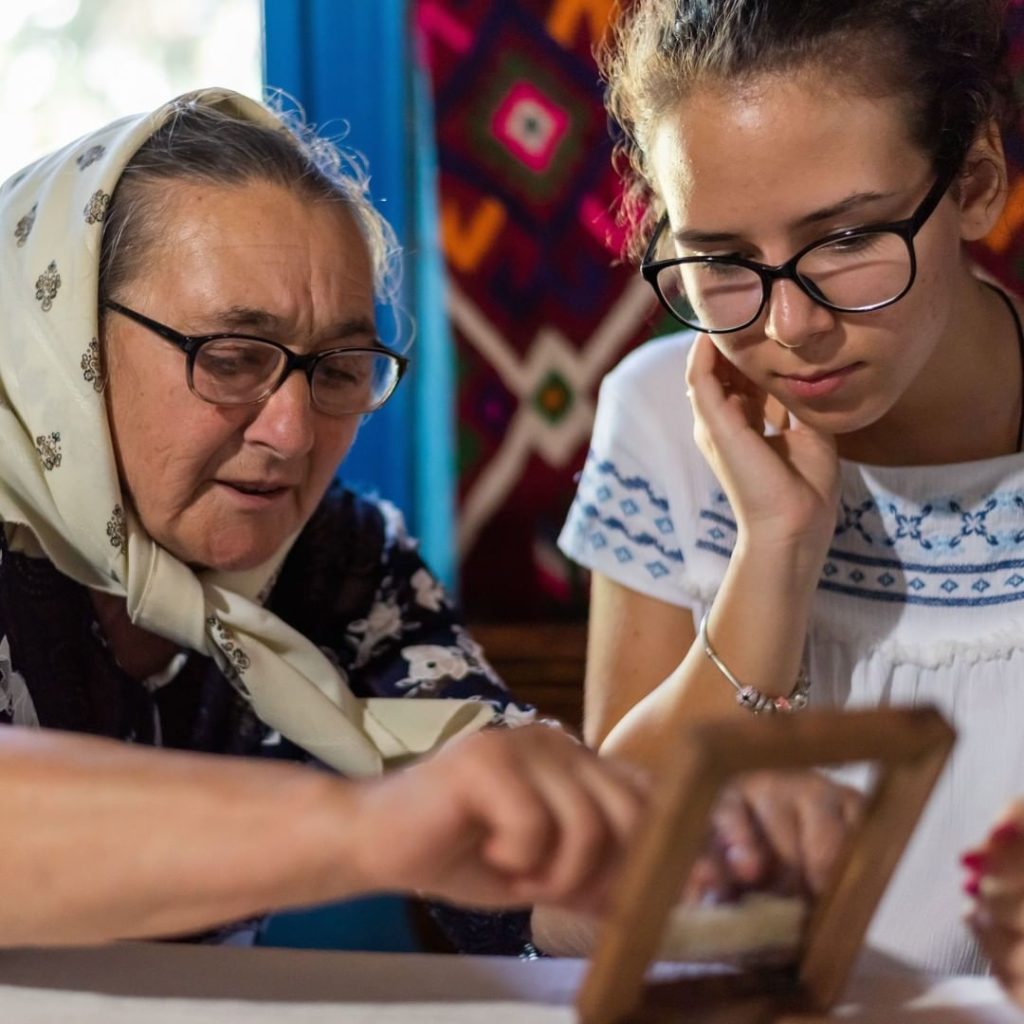
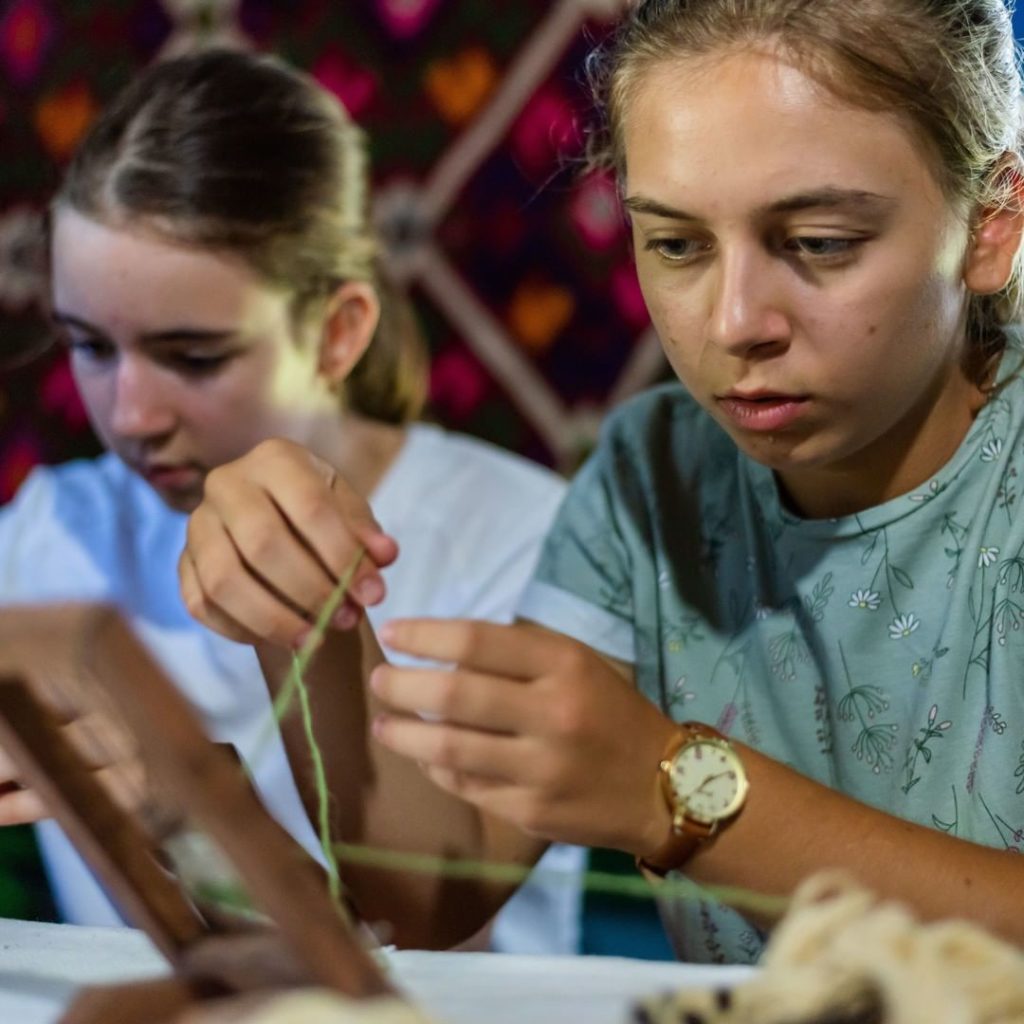
🧶 După ce lâna a fost scălmânată și firul a fost confecționat prin tors, copiii au început să folosească firul de lână pentru a țese. Mai întâi au țesut la gherghef, iar mai apoi la război (glisați imaginile pentru a vedea cum se lucrează la războiul de țesut).
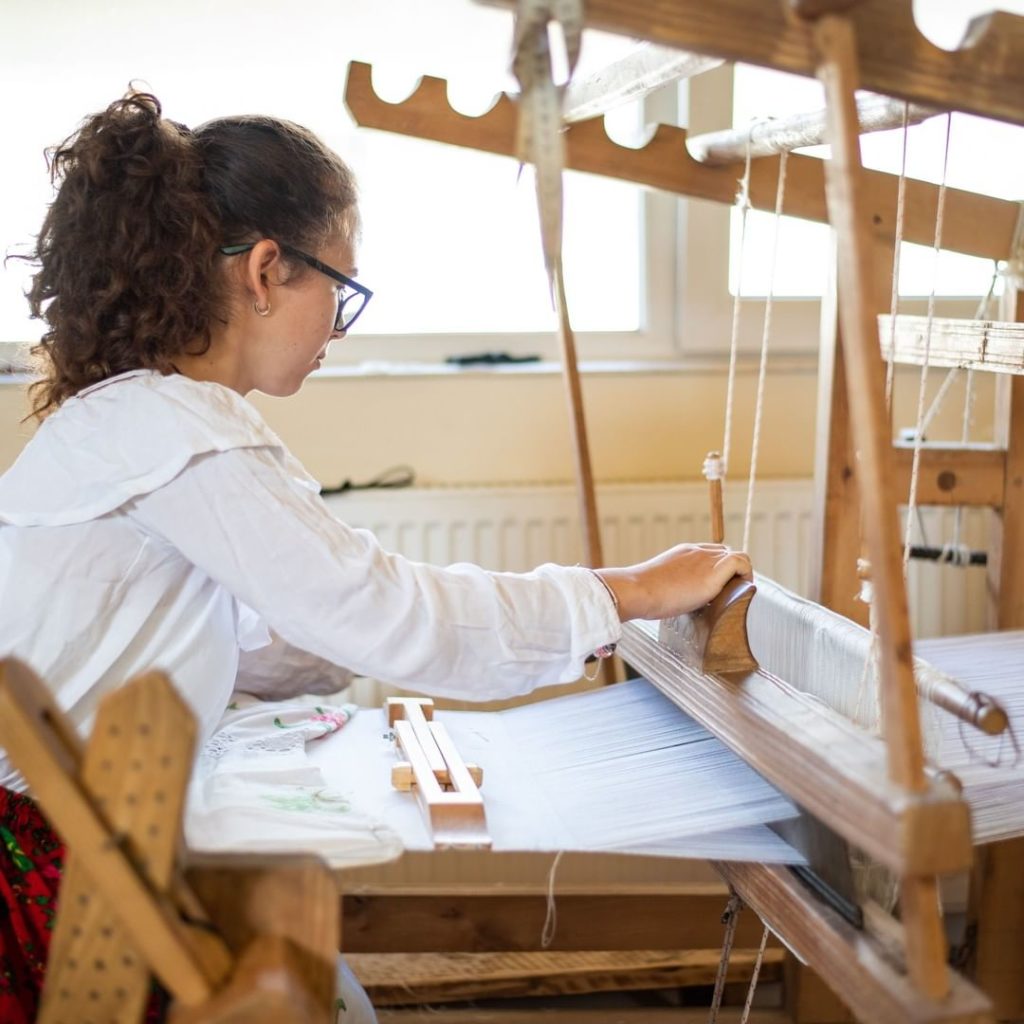
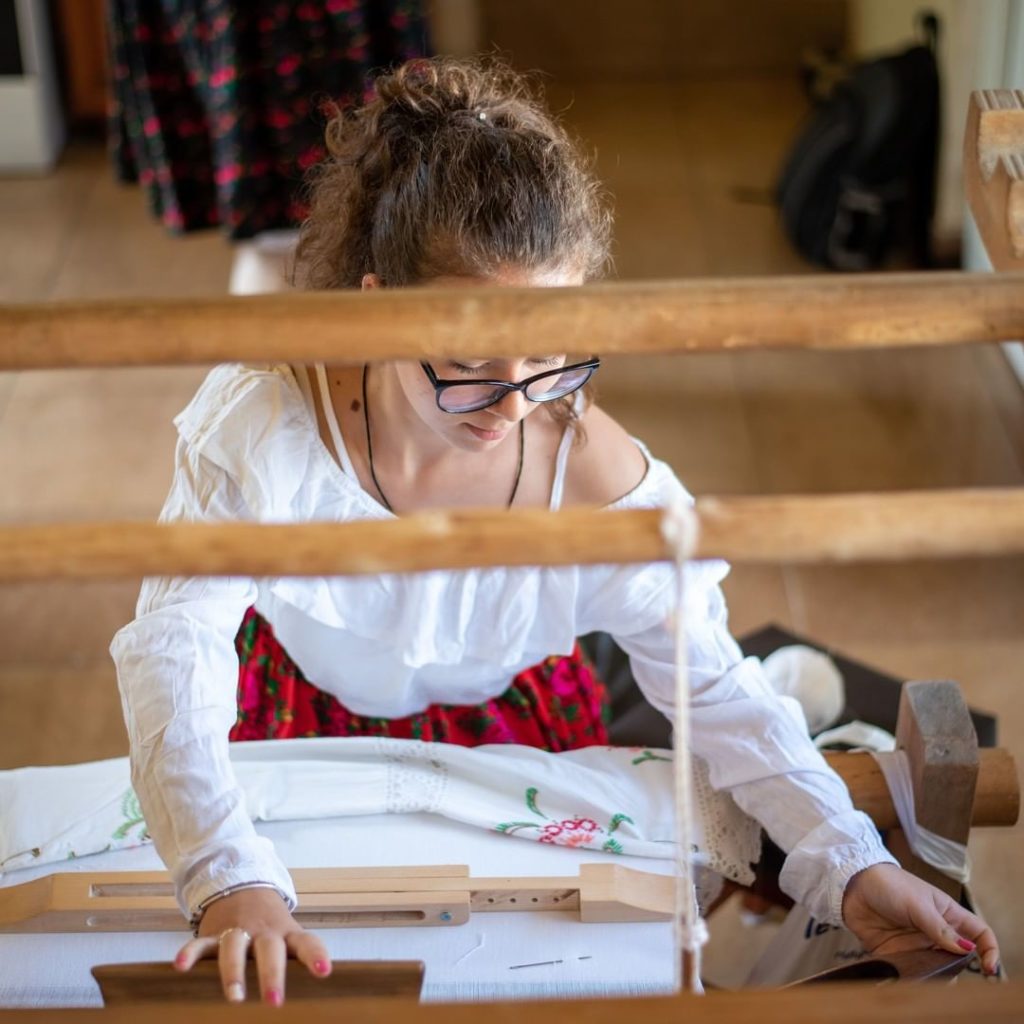
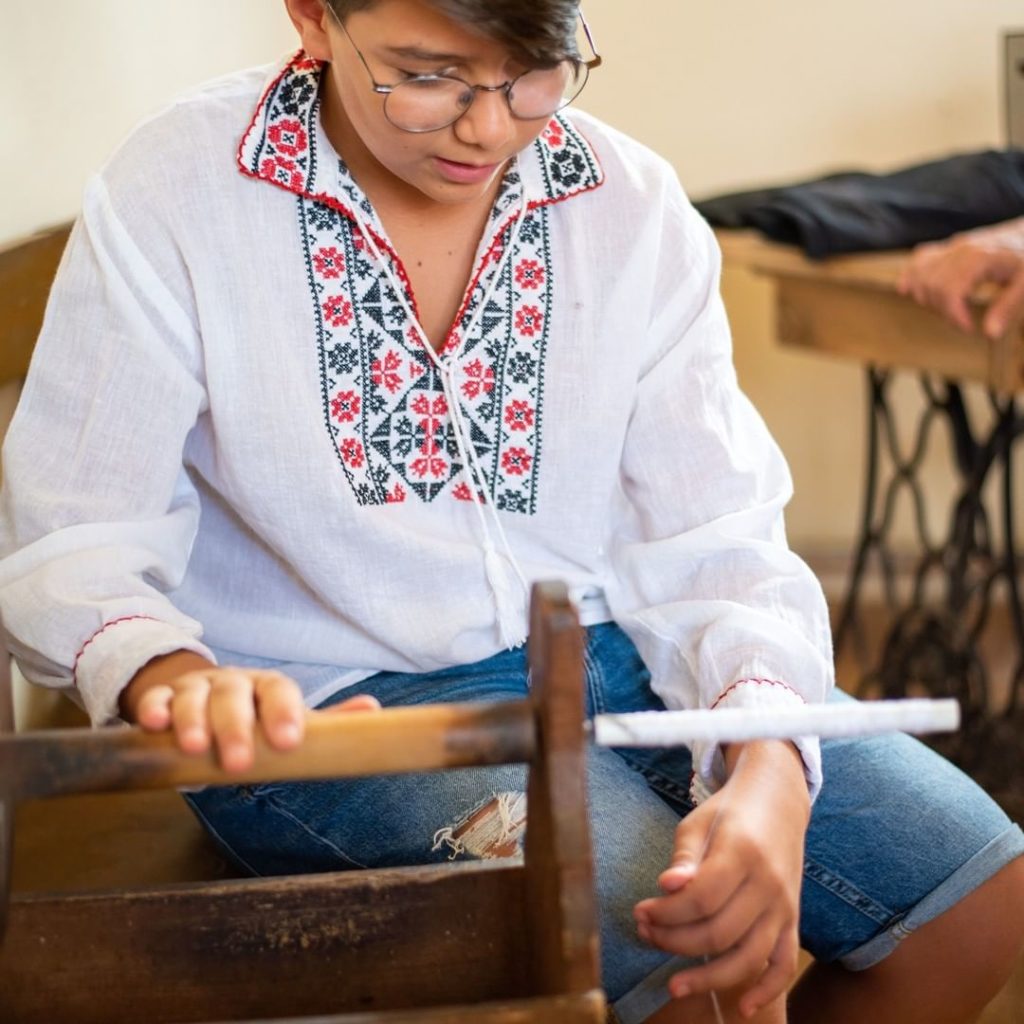
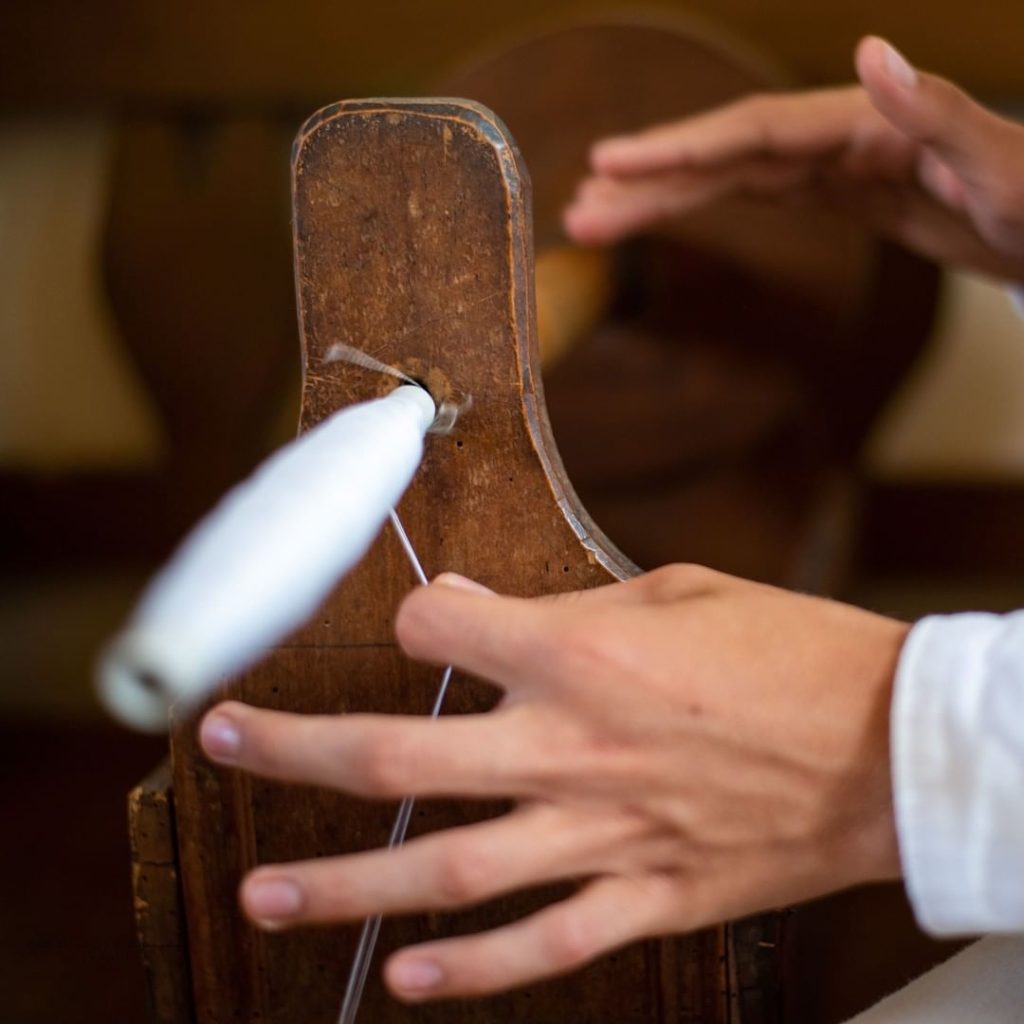
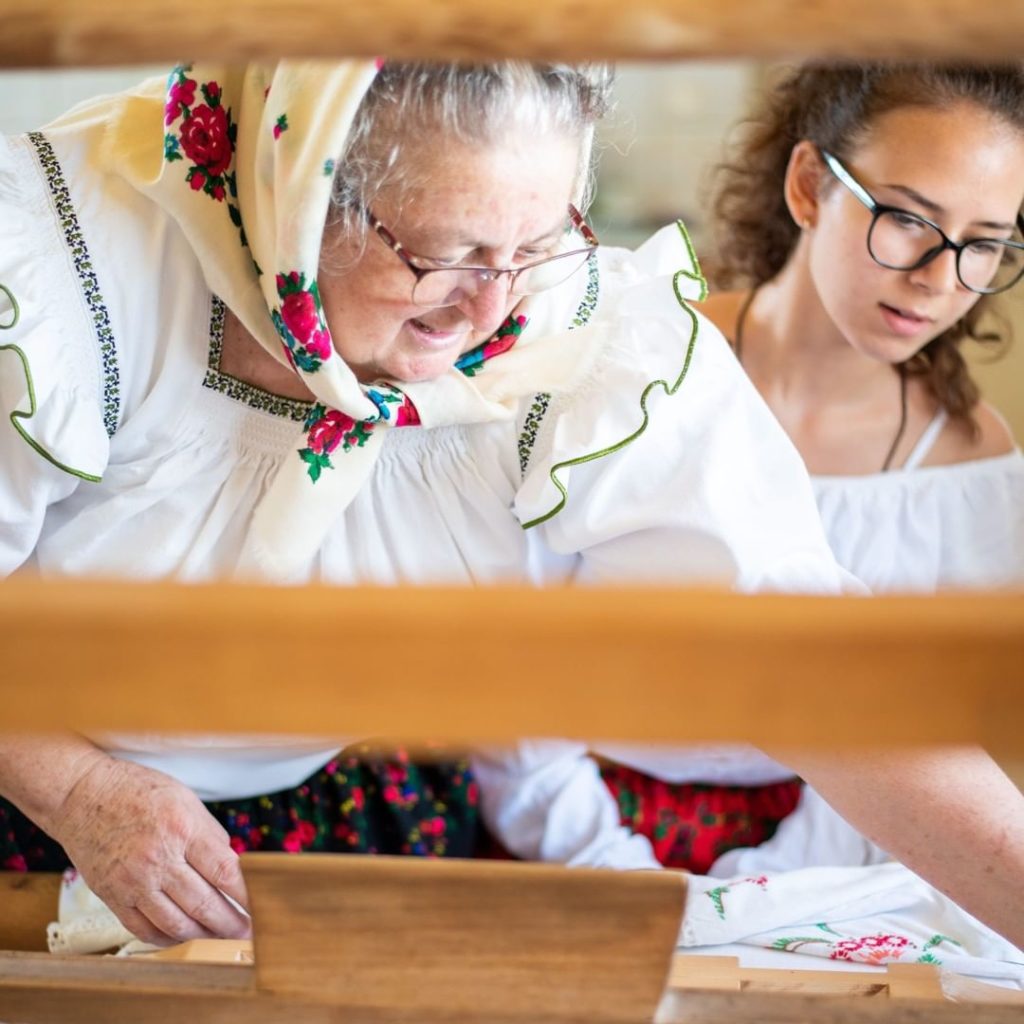
🪵 Continuând atelierele meșteșugărești menite să îi facă mai atenți la cum folosesc obiectele din jurul lor, tinerii au învățat să lucreze în lemn, începând cu sculptura pe suprafața lemnului utilizând dalta și ciocanul.
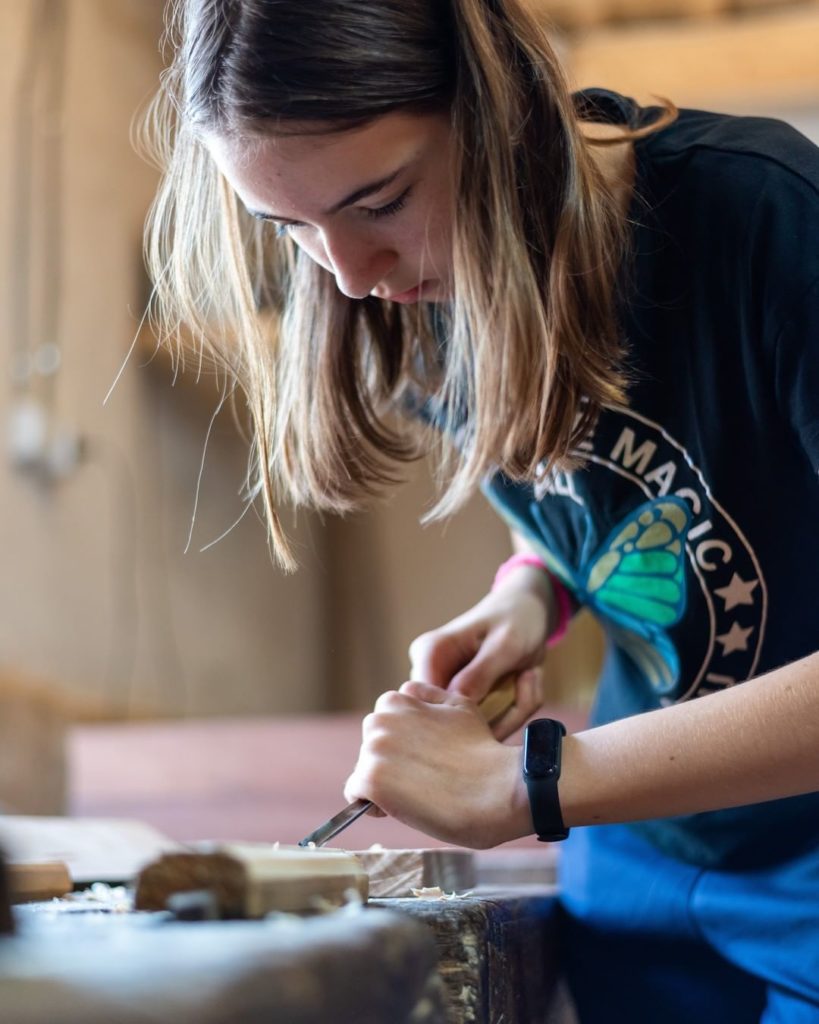
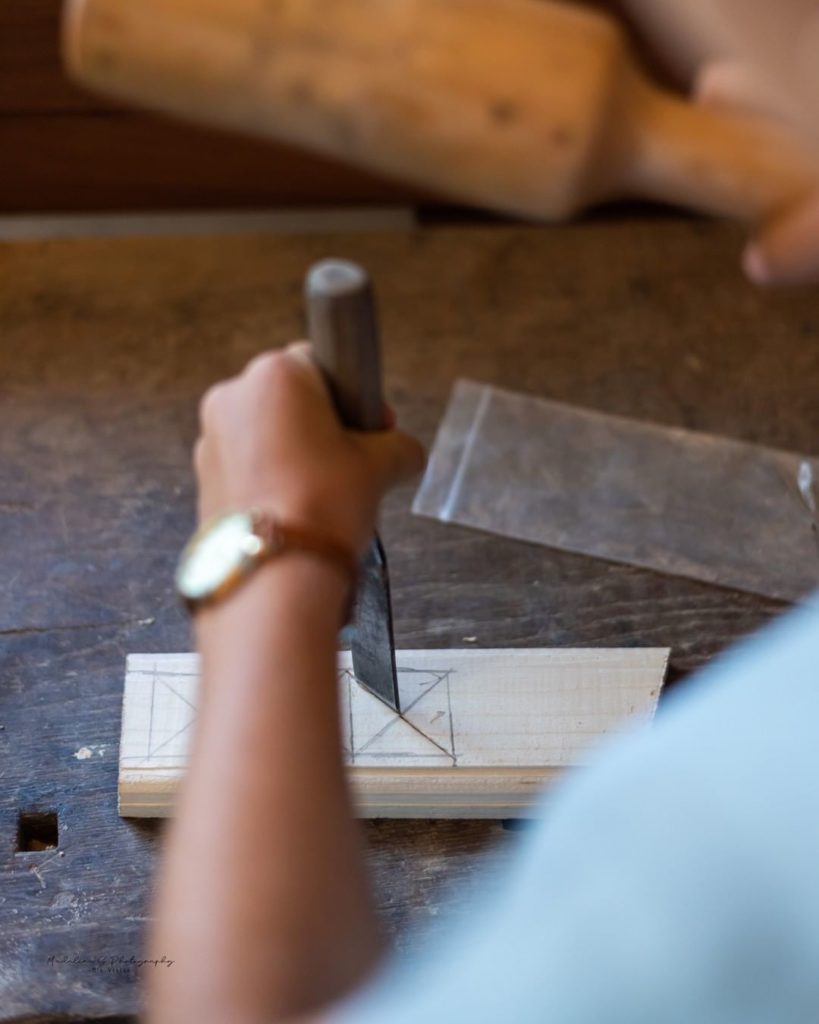
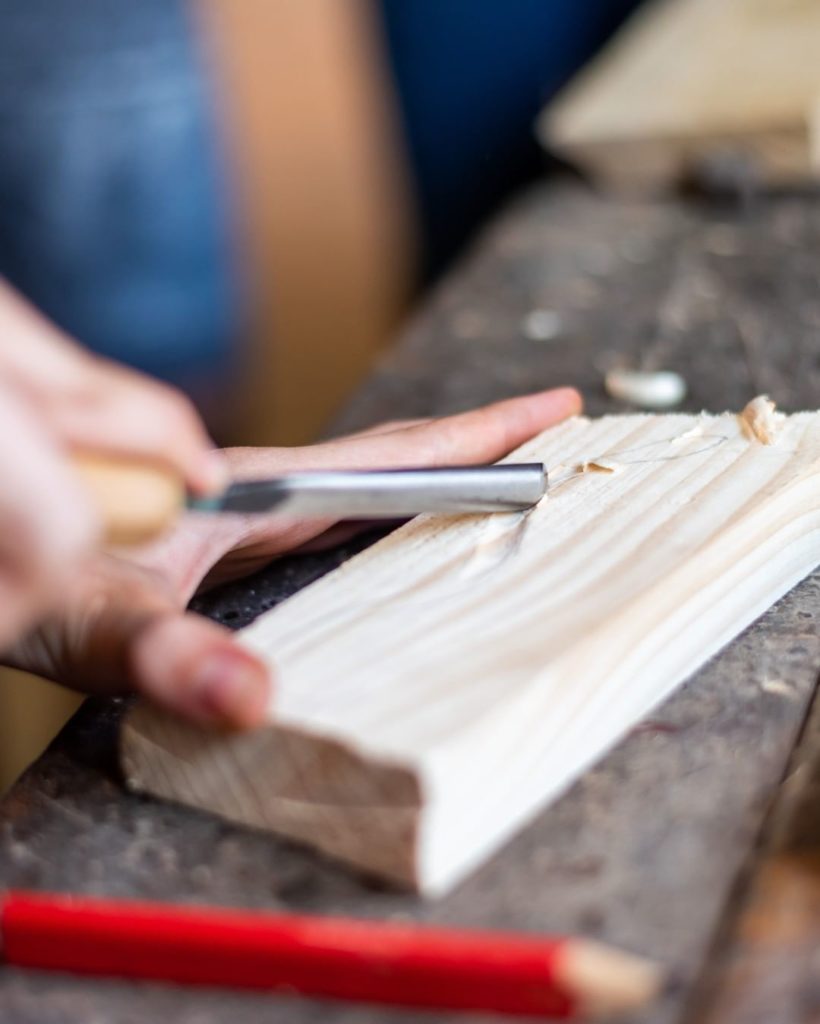
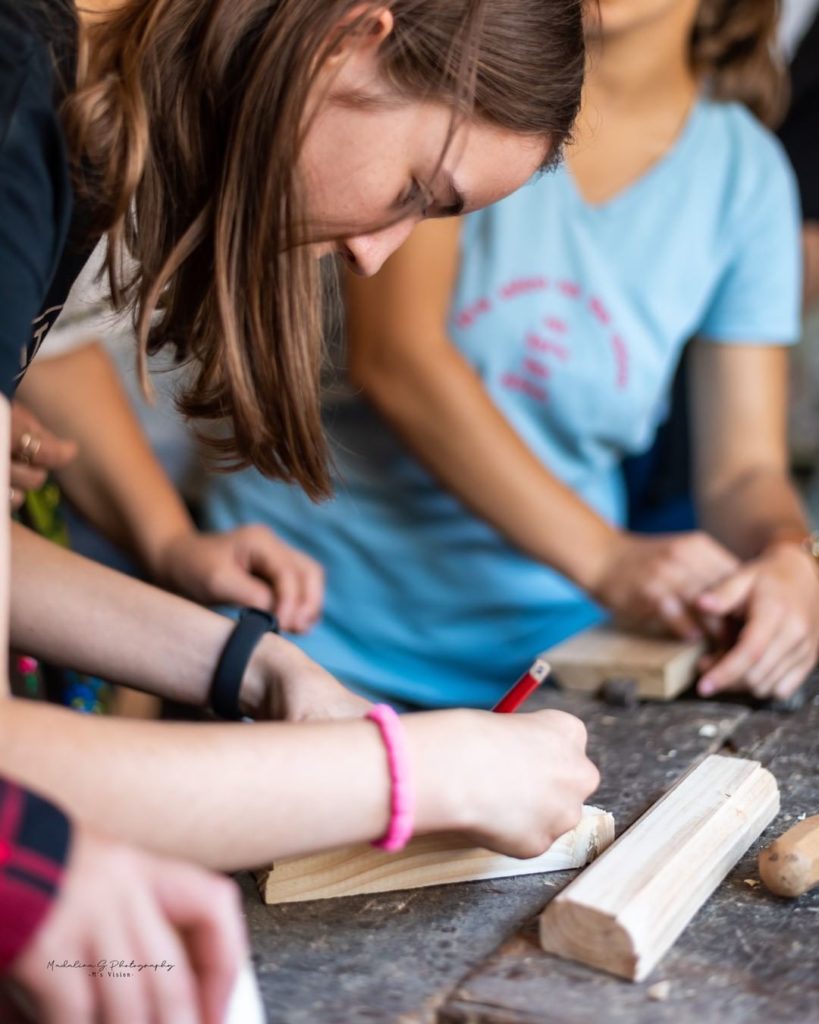
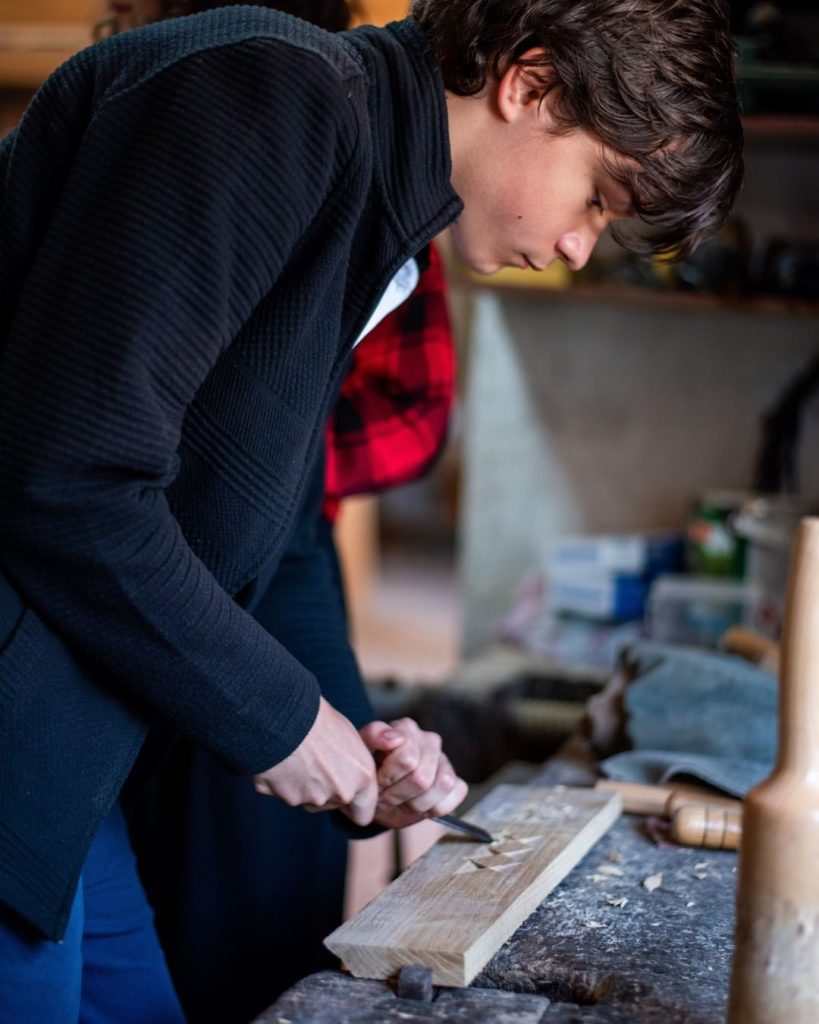
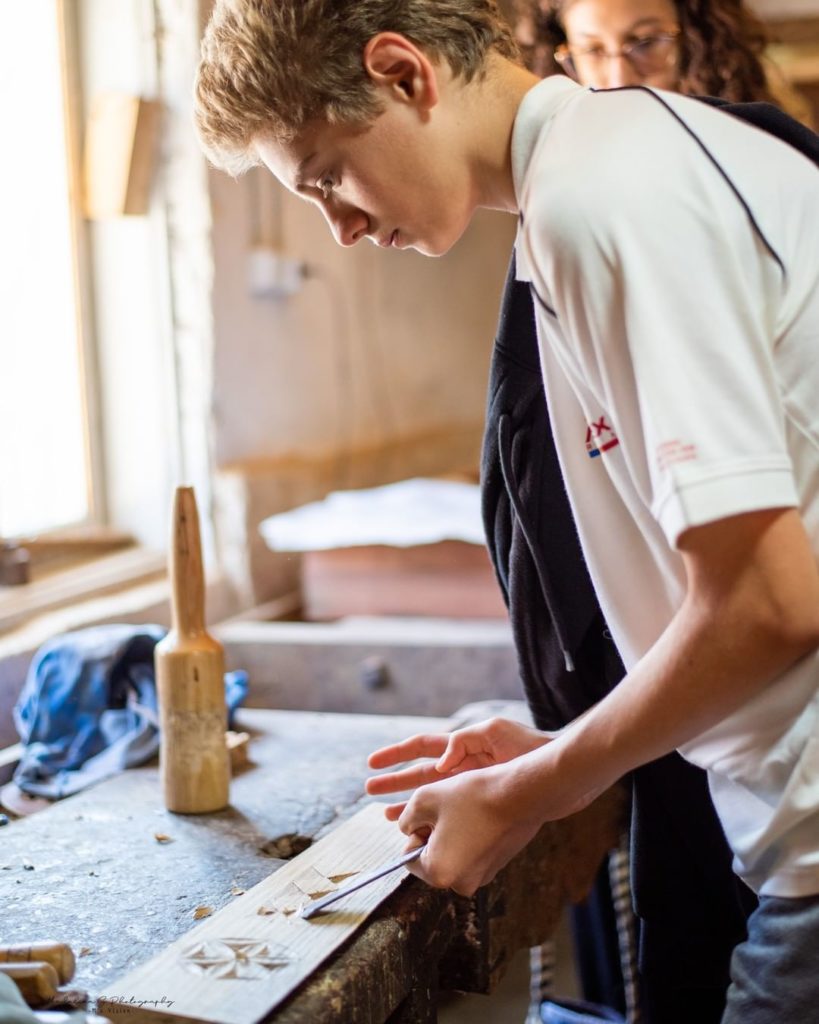
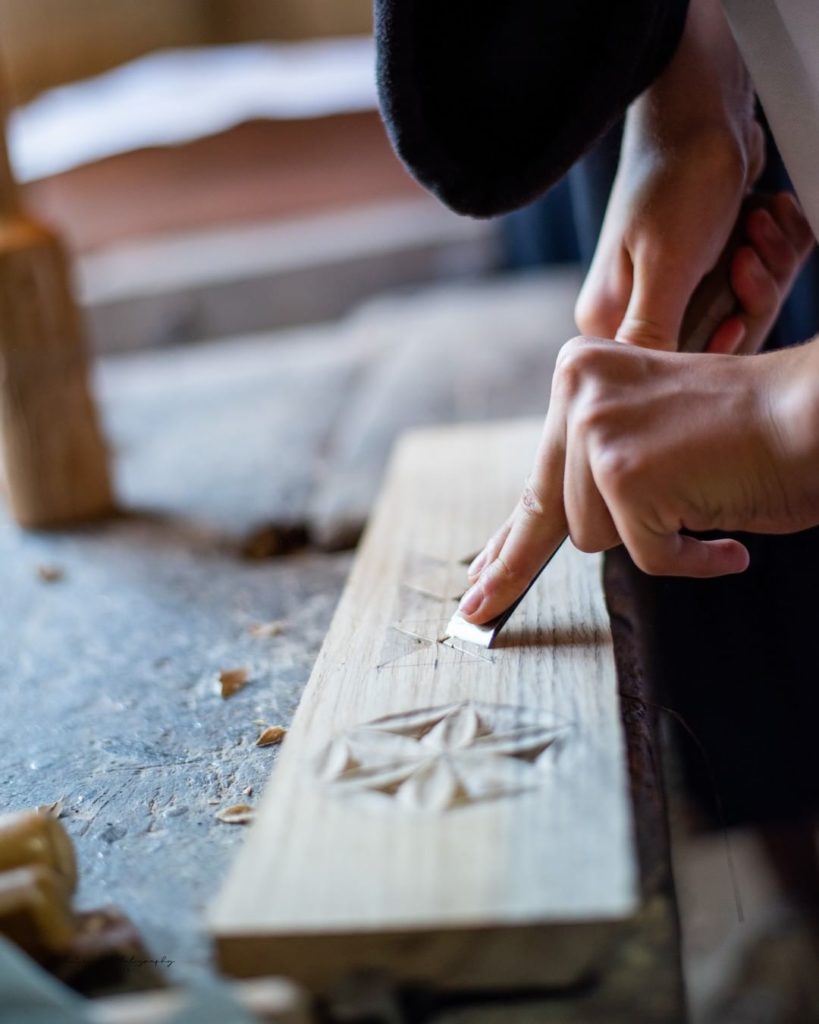
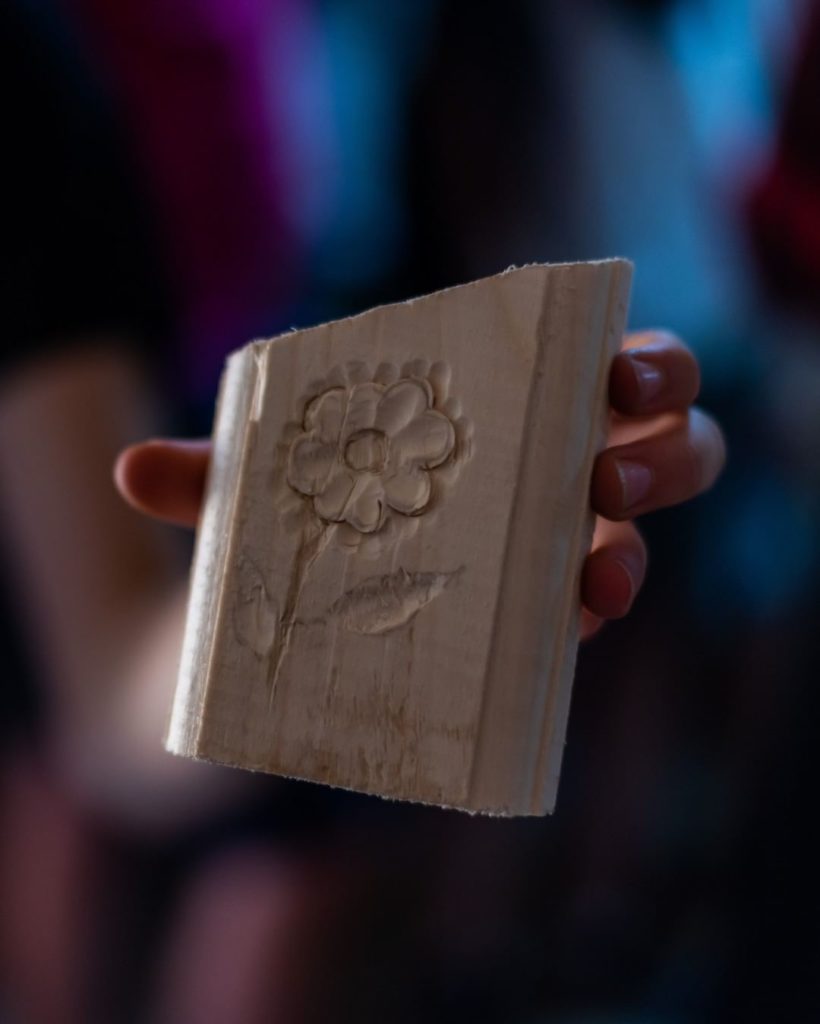
🏠 V-ați întrebat vreodată cum se izolează casele din lemn rotund? Se folosește un material obținut din pământ, bălegar și fân. Cei 20 de tineri au învățat în tabără această veche tehnică de izolație care folosește materiale găsite în jurul casei.
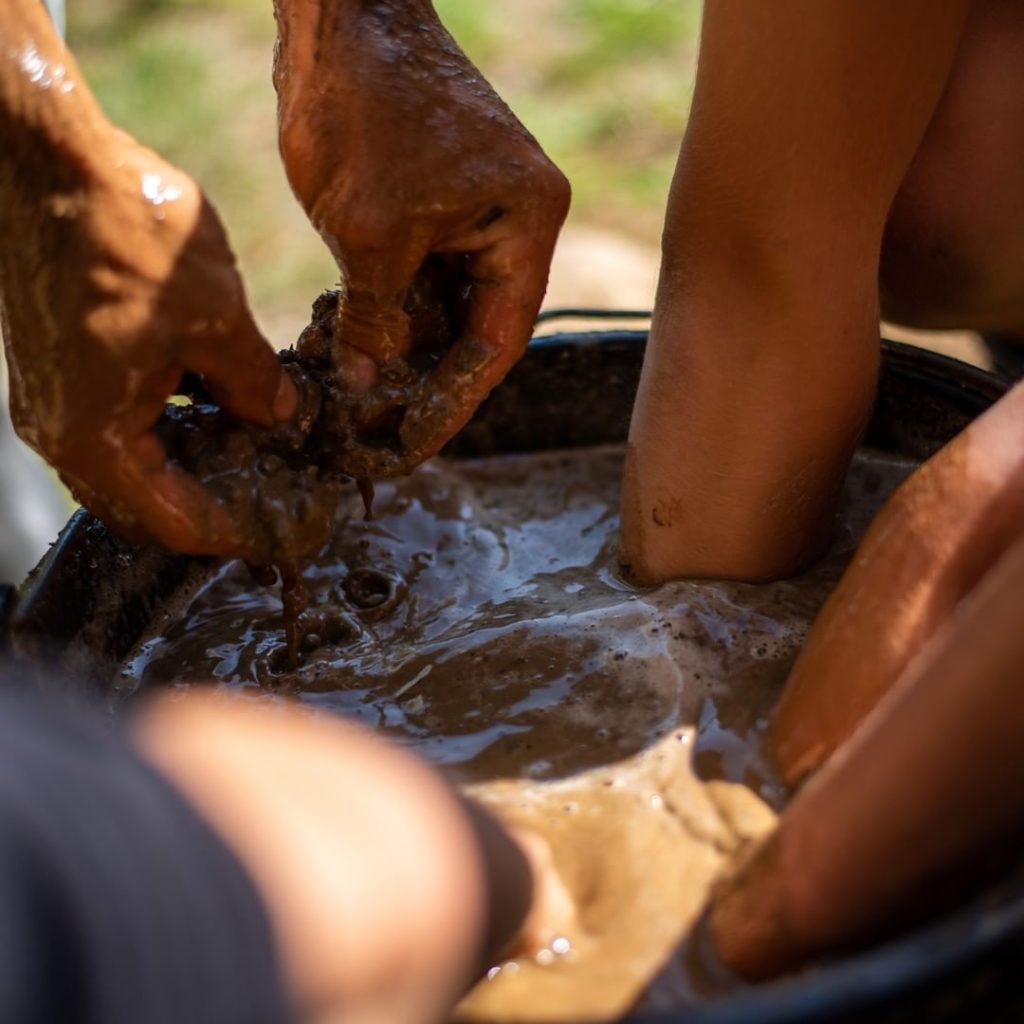
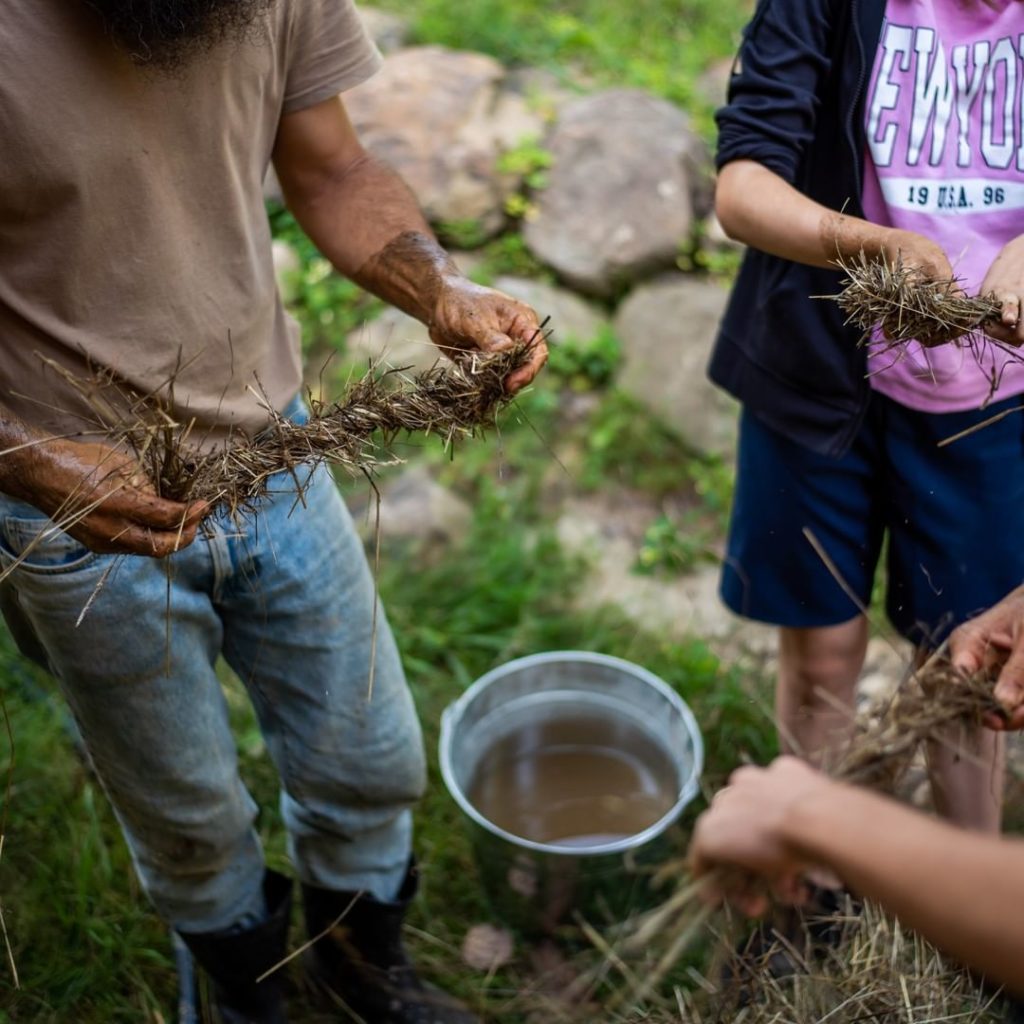
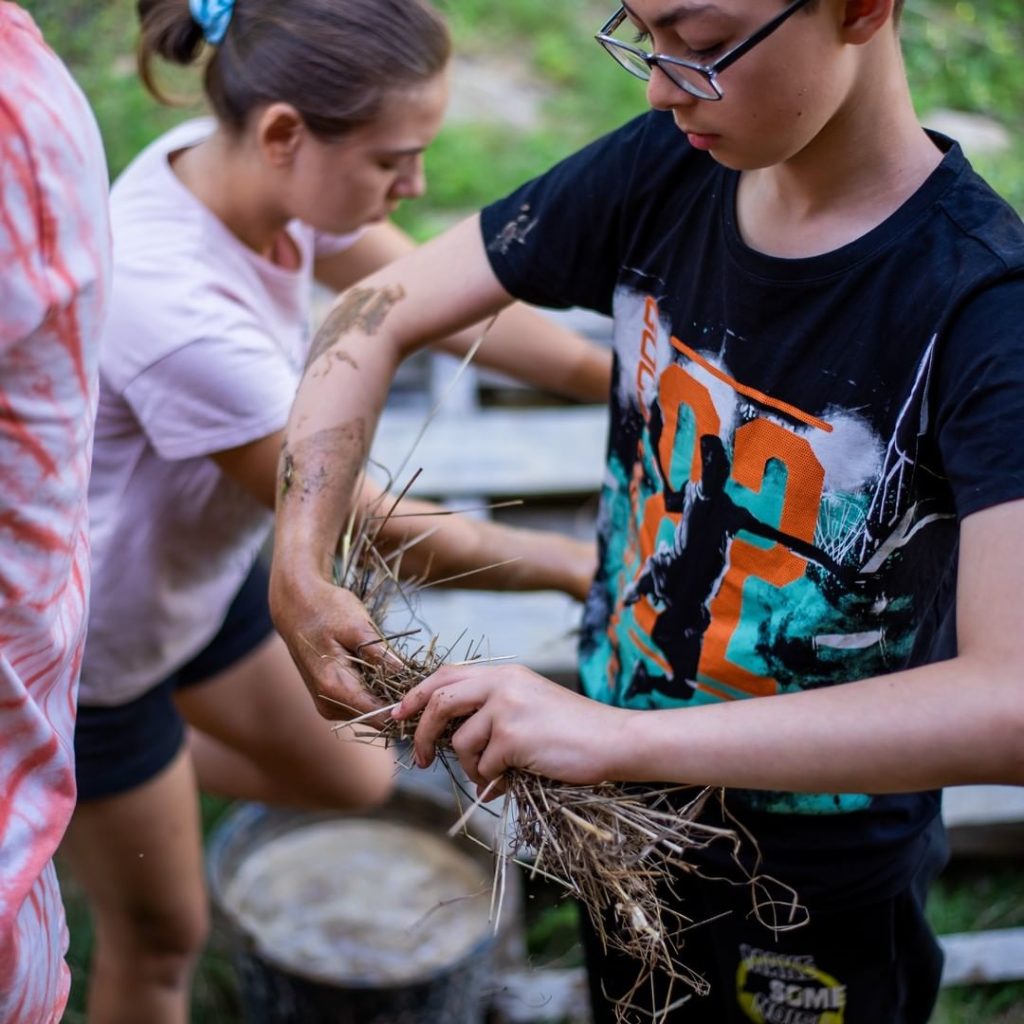
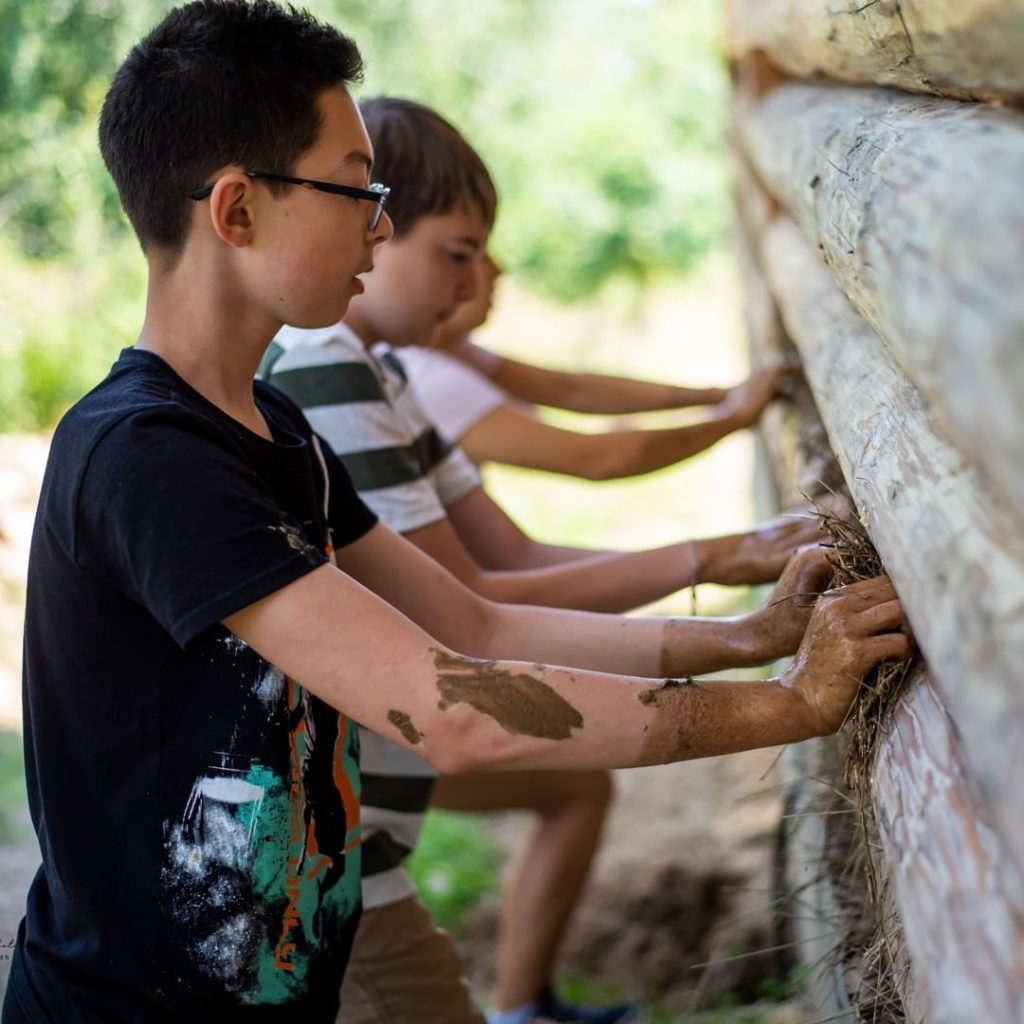
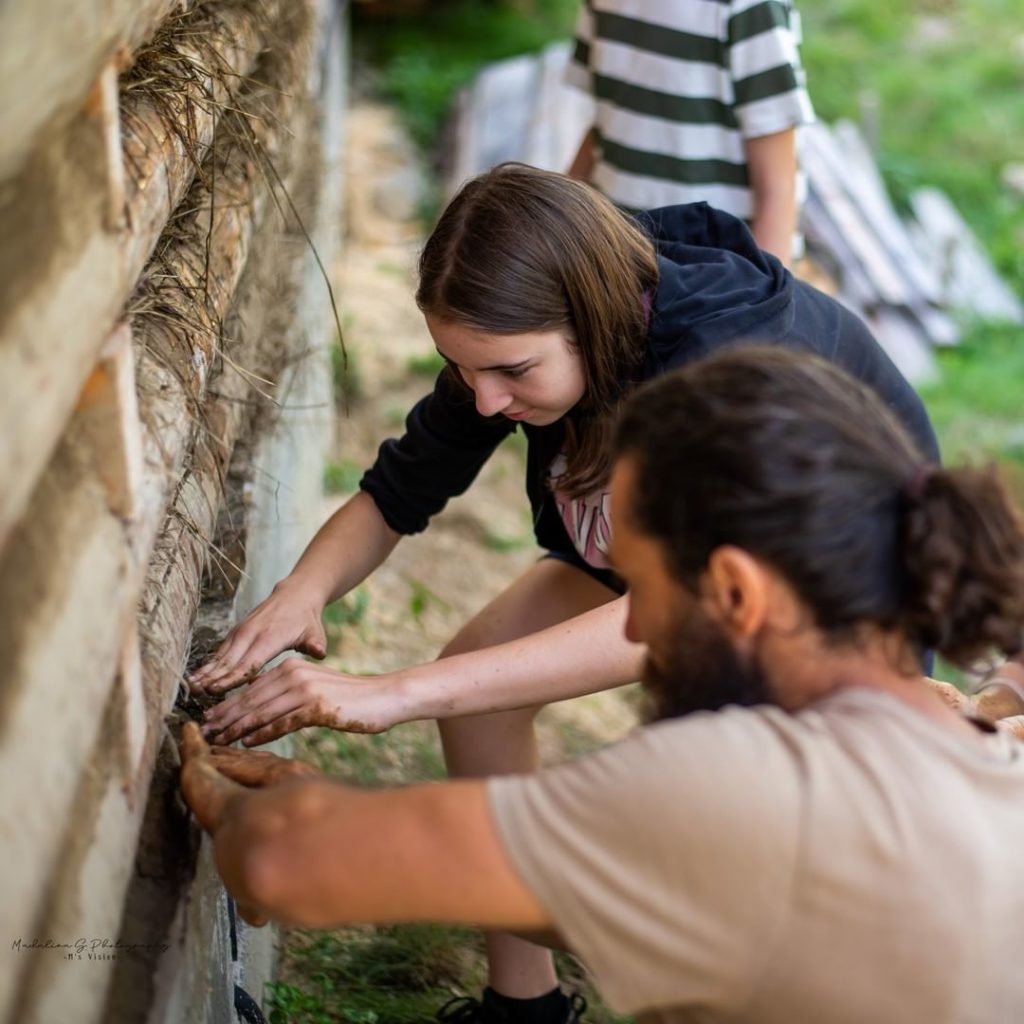
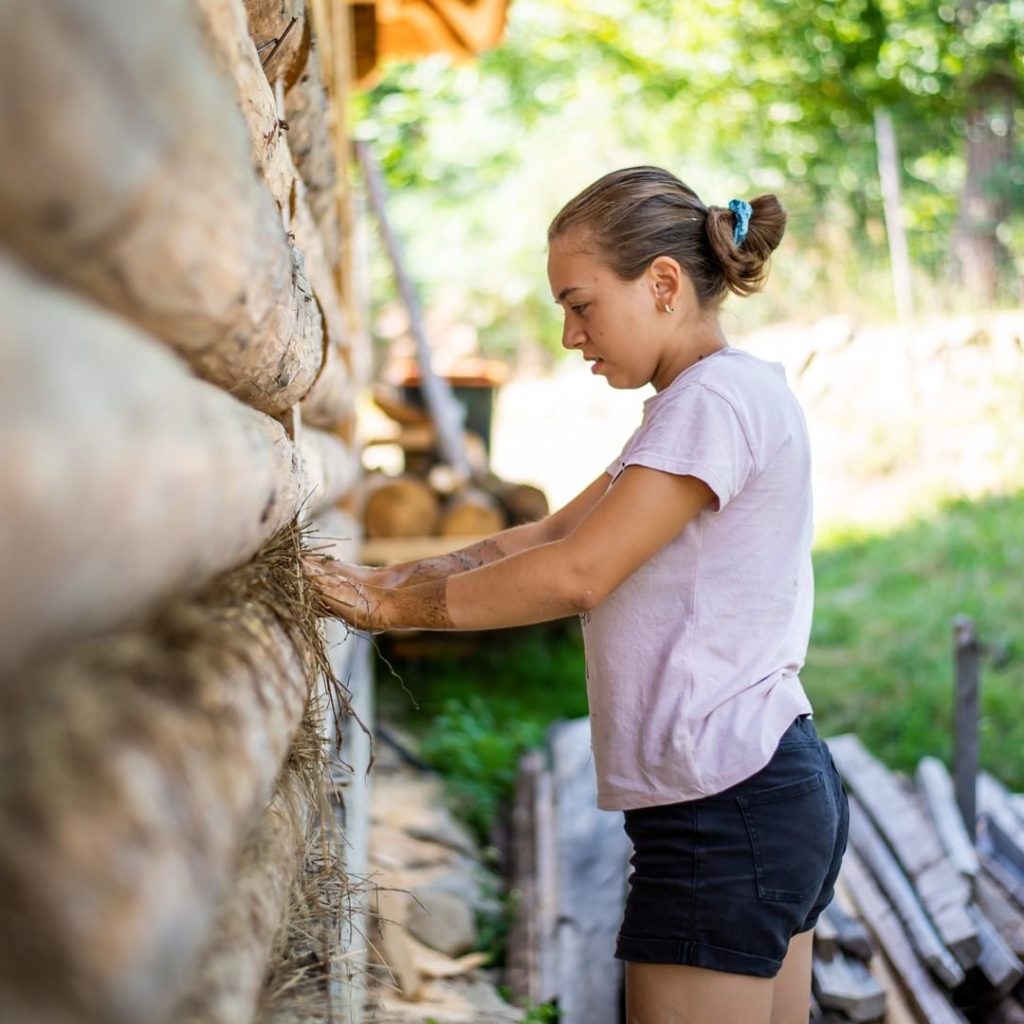
🏠 Către finalul atelierelor, toți tinerii au participat la o sesiune organizată de arhitectul și constructorul casei despre metodele de a construi o casă din materiale naturale, așa cum este cea în care au locuit timp de două săptămâni. Au aflat și de ce pentru mediu și comunitatea locală este benefic să construim astfel.
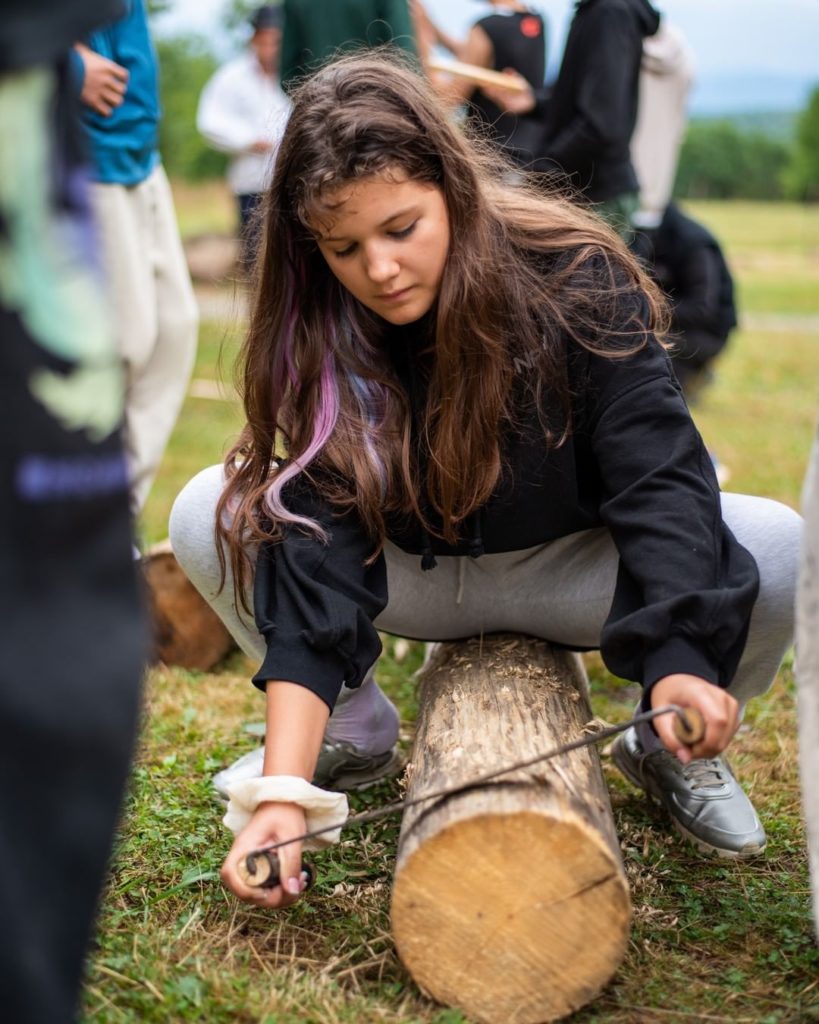
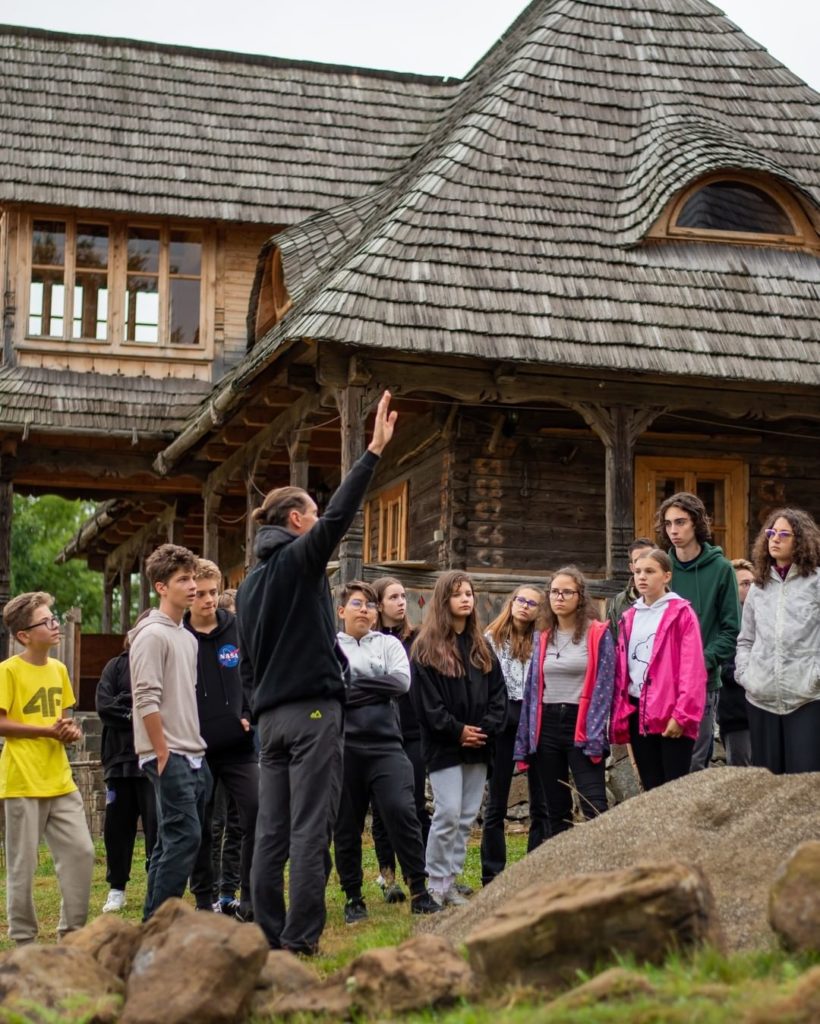
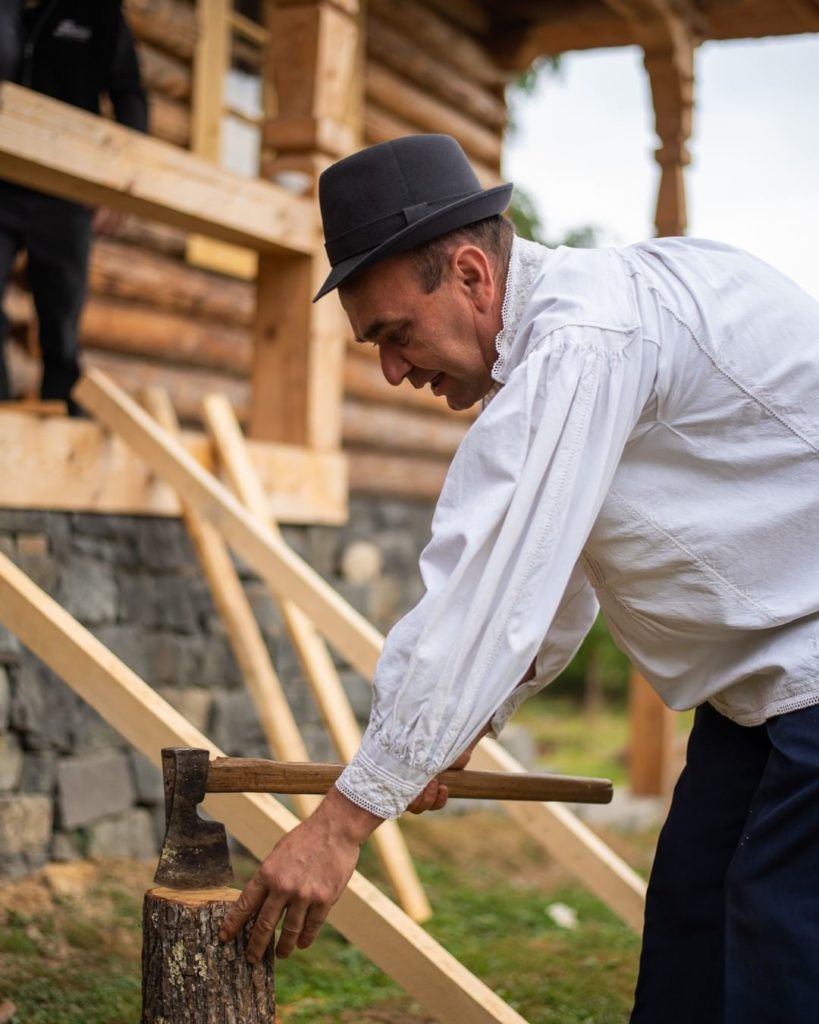
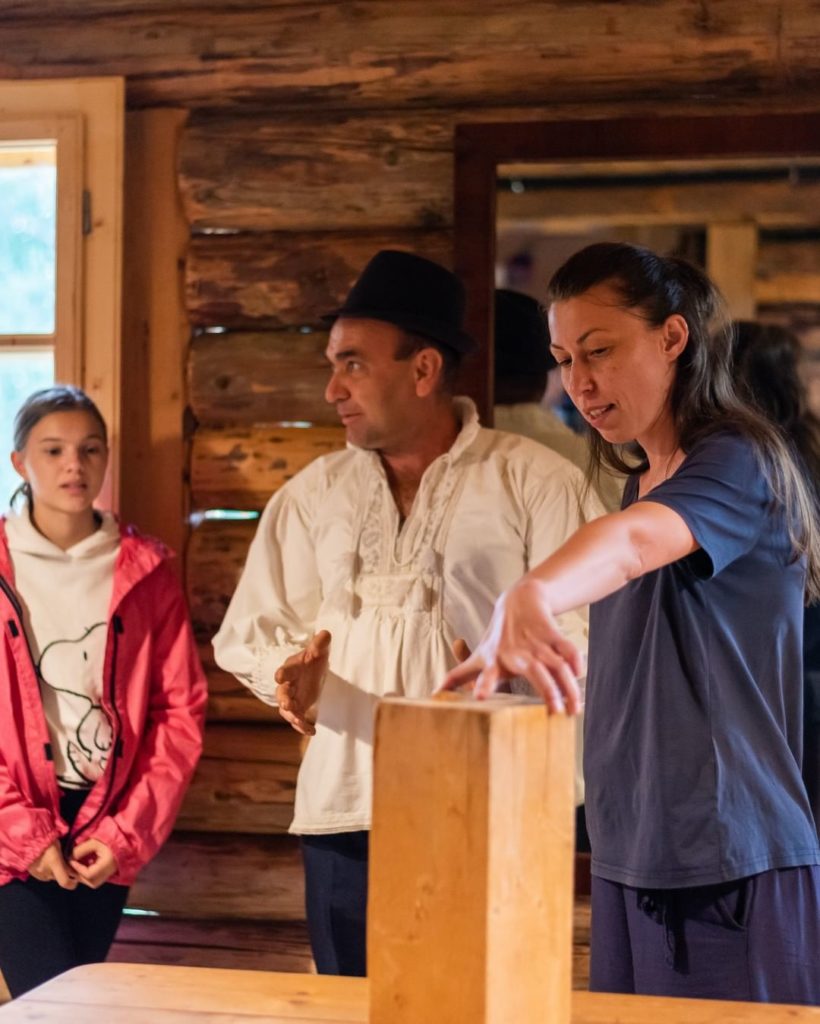
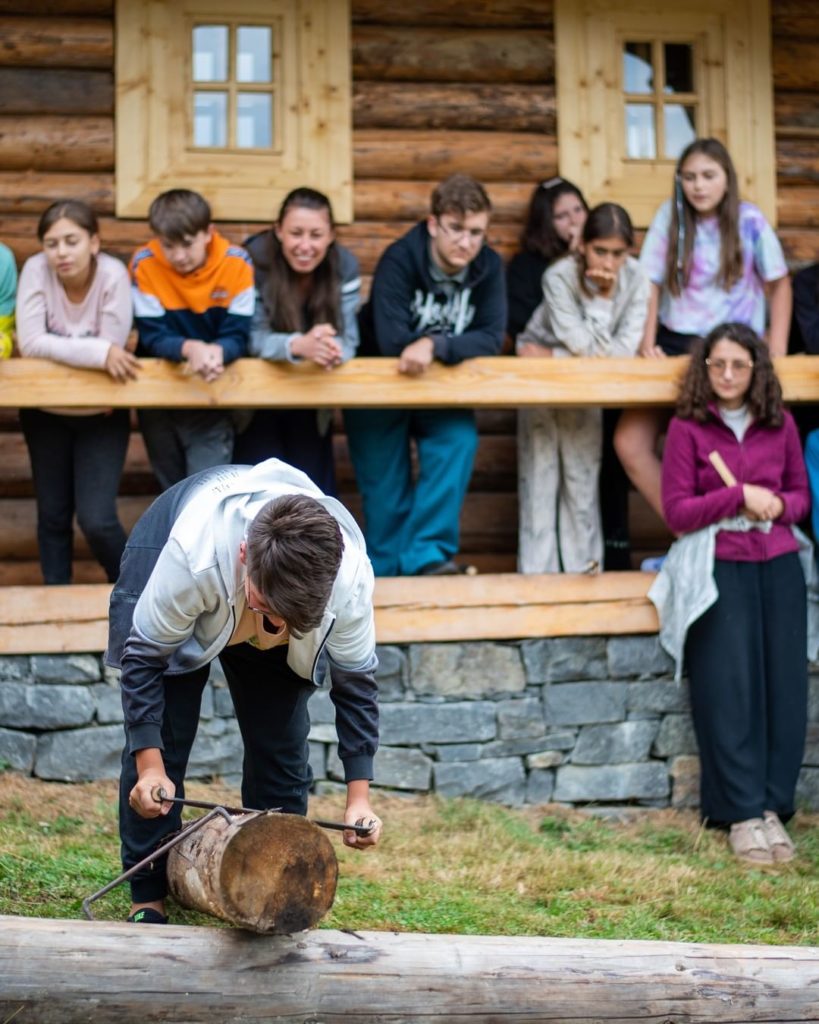
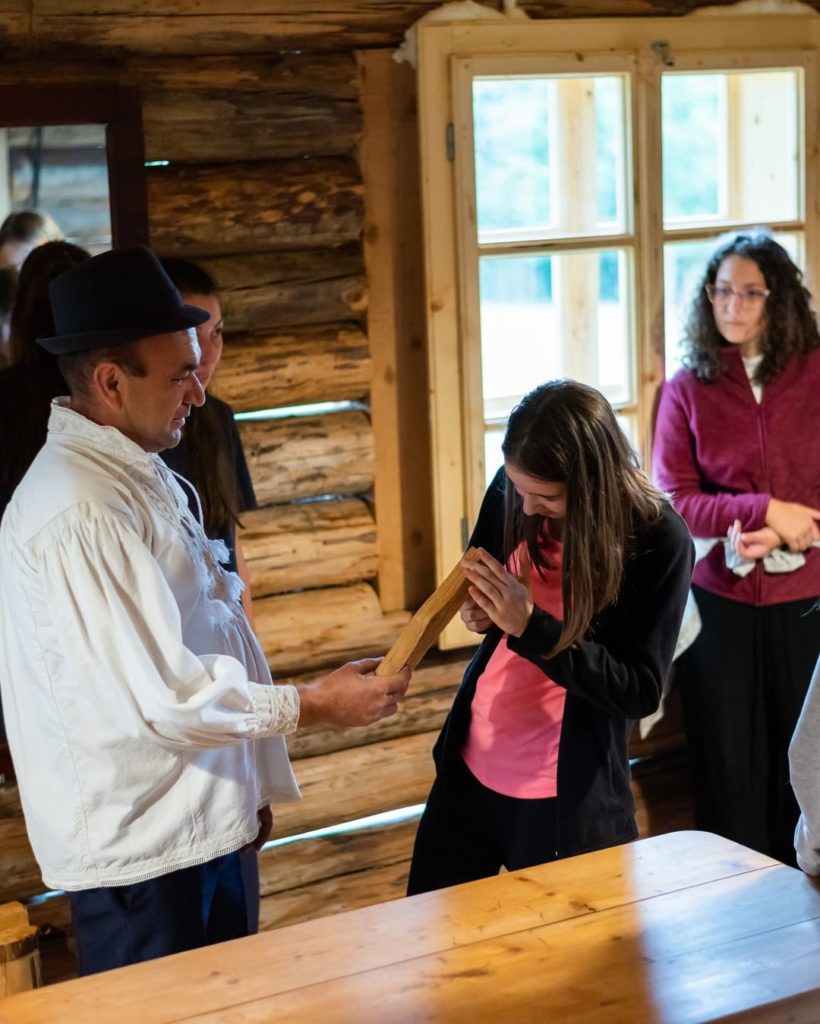
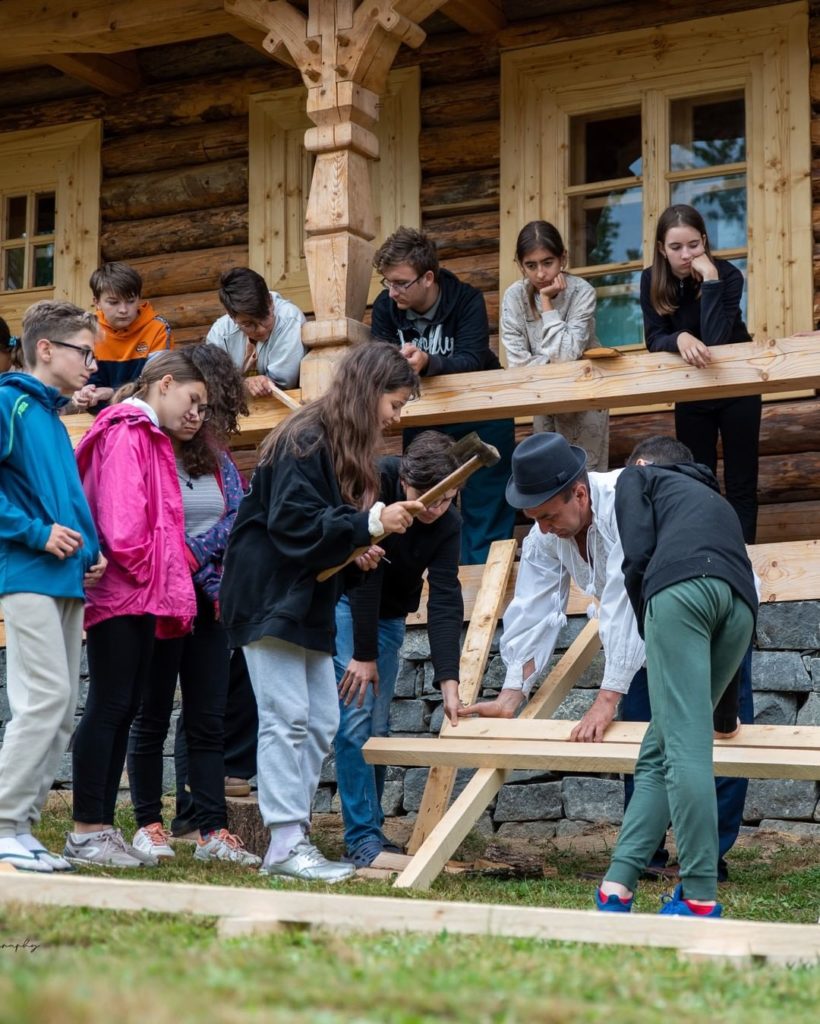
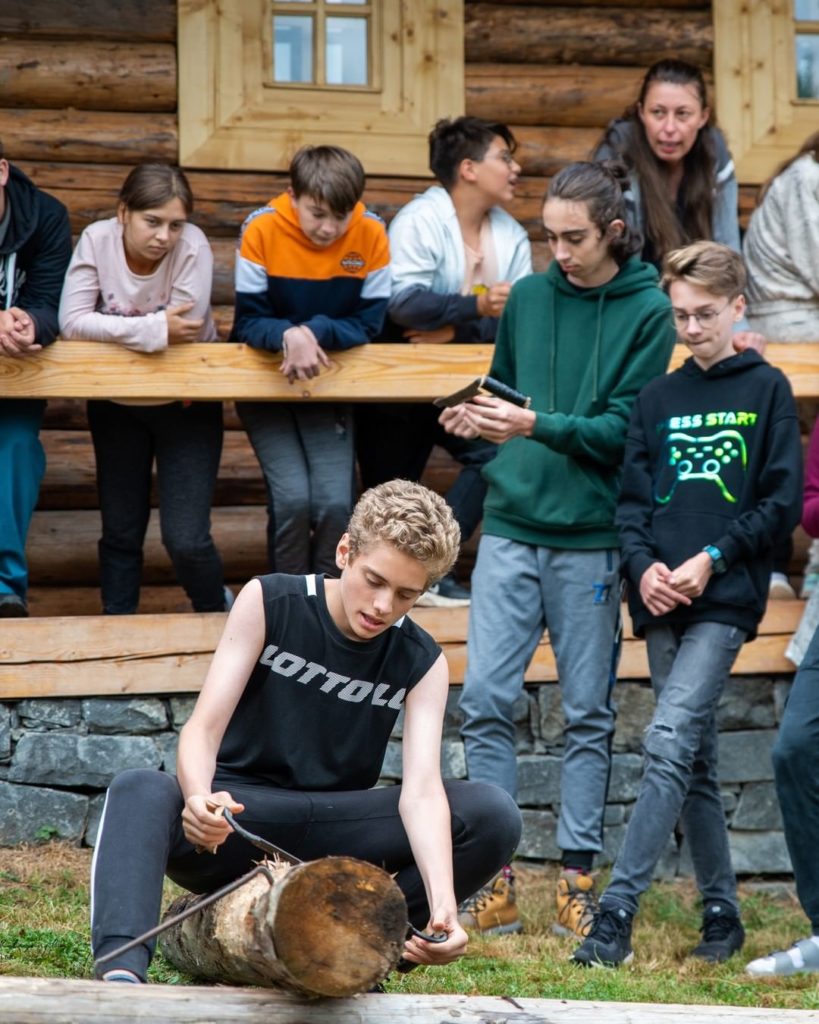
Suntem ferm convinși că tinerii au înțeles semnificația acestor ateliere meșteșugărești: se poate trăi și în comuniune cu natura, nu doar împotriva ei. Putem folosi ceea ce natura ne oferă pentru a produce manual unele lucruri de care avem nevoie în viața de zi cu zi, în loc să ne bazăm pe o industrie poluantă care îmbolnăvește Pământul.
Cu pași mici către o schimbare mai mare.
Local Media Reported about Our Sustainability Project
Thanks to Măriuca Verdeș, our project was presented on local TV:
Local newspapers, such as Graiul Maramureșului, also picked up the topic and reported about our project, highlighting that the natural surroundings found of the village Breb facilitate the development of ecological awareness in the teenagers participating in the project.
Friends for Life and Friends with Nature
All in all, the camp was an exciting, thought-provoking, and unforgettable experience for us, the supervisors, as it was for the 20 young participants.
We are especially happy about the way the children behaved, always engaging in the activities and paying attention to the theoretical classes. And they surely had enough time to play as well.
When the summer camp ended, there was a lot of crying. While it is heartbreaking to see such good friends having to say goodbye to each other, we took this as a good sign. It means the youngsters will never forget what they experienced in the REFE sustainability summer camp in Breb, Maramureș in the summer of 2021.
